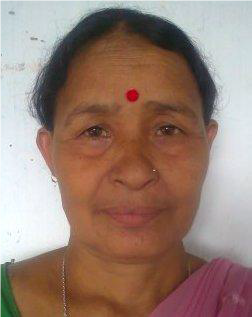Pabitra Sonari belongs to the Nepali Community in Changhai Village of Gahpur Block, Biswanath District in India. Prior to joining KVA, Pabitra carried out small activities to make money such as making pickles. But she always wanted to do better in life. Hence, once the KVA Centre was set up by SEWA, she became a member.
Along with 40 other members of SEWA, she went to Ahmedabad for a three-month training program to learn skills on various livelihood.
Now, Pabitra is working independently. She has purchased a sewing machine and sews ladies’ garments in her own home. She also gives training on agarbatti (incense stick) making and stitching to women from the neighboring villages to strengthen their livelihood and make them independent.
“From someone who had bare minimum knowledge, thanks to KVA, I am now training the community and assisting them towards a sustainable livelihood”, says Pabitra.
Established in 1986, the Kokila Vikas Ashram (KVA) operates on the lines of Gandhian principles and values on rural development, livelihood opportunities, employment generation and self-reliance. The organization aims socio-economic transformation by creating awareness, capacity building, organizing the rural people, skills training of youth and women, and educating the children. KVA works in Gahpur Sub Division of Sonitpur Districts and focuses on the empowerment of the Boro Tribal Community living in the North Bank of Bhramaputra. KVA is one of the farmer organizations under the MTCP2 Programme in India.
SEWA is a member of the Asian Farmers’ Association and is also the national implementing agency of MTCP2 Programme in India.
About MTCP2
The Medium Term Cooperation Program Phase 2 (MTCP2), a five-year capacity building program supported by the International Fund for Agricultural Development (IFAD), the Swiss Agency for Development and Cooperation (SDC), and the European Union (EU), has been implemented in 19 countries across three sub-regions—Southeast Asia, South Asia, and the Pacific—engaging 1,544 sub-national farmers organizations (FOs) with a total membership of around 22 million farmers. The funding support (total budget of $ 5 million for the whole duration of the project across 19 countries) serves as a catalytic fund that will allow FOs to enhance their capacity to be effective channels of economic services to farmers. So far, the program has contributed to the formation of strong national platform of FOs with improved capacity to engage in policy processes and mobilize resources from mainstream agricultural development programs like extension services, credit, and pre and post harvest facilities. The program also helped in transforming farmers associations into commodity-based cooperatives to strengthen the role of small-scale farmers within an inclusive and sustainable value-chain. The program is being implemented by the consortium Asian Farmers’ Association for Sustainable Rural Development (AFA) and La Via Campesina (LVC).




Comments are closed